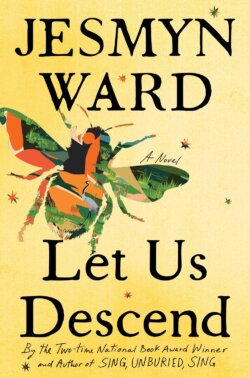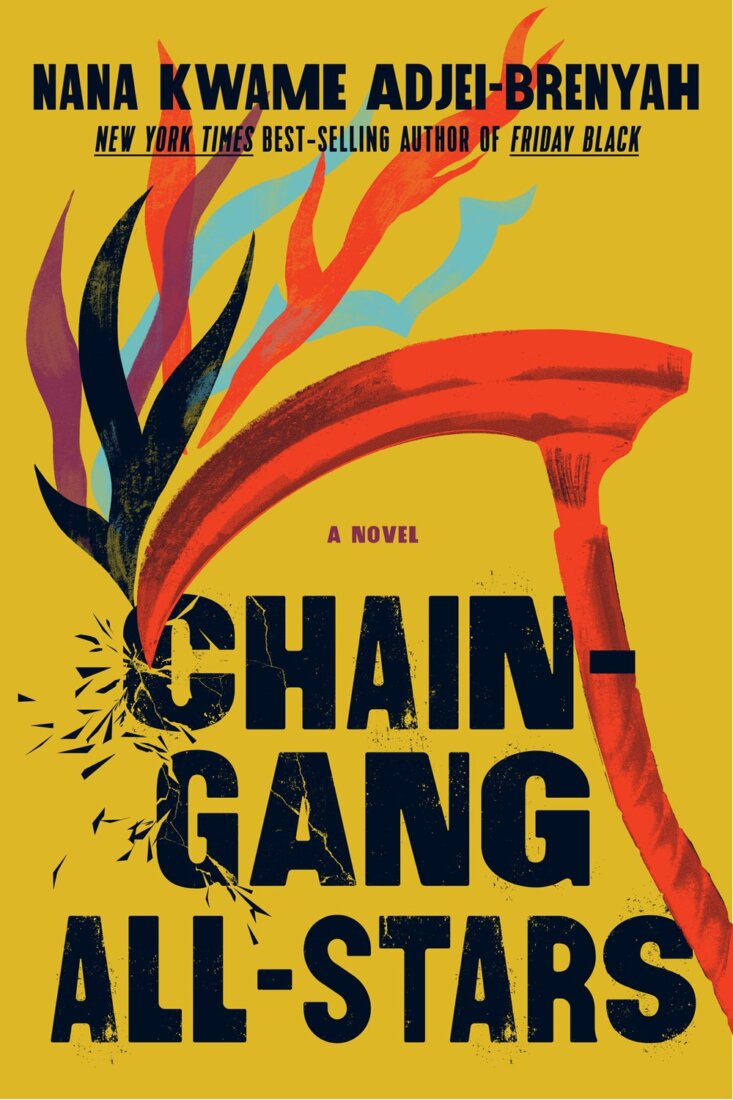The two institutions in which I spent the most time as a child in Lexington, Kentucky, were the library and the church. The library was a small local branch at which, every Saturday, I’d check out my limit of 20 books. These I devoured alongside bags of misshapen apples on sale at the store. The church offered free childcare in the form of Bible School. Sessions began with the Old Testament and ended with the Pringles I wasn’t allowed at home.
Both spaces fed the same fundamental need. I have always been a glutton for wonder. On the page, in the pew, I would sometimes experience a glorious expansion of my self beyond my body. I was equally moved to tears by the scene of a mouse warrior sacrificing himself in Brian Jacques’ Redwall series and a hymn about God so loving the little children that he gave up his only son. Both experiences ignited a physical charge: a tingling, a surge of heat and awe. I felt it in my body.
***
A few years later, I lost religion. I continued to reread the Old Testament long after giving up prayer. By then my family had moved to California. Under that terrifying expanse of Western sky, I anchored myself in the old story of the world as a place infused with meaning, wonder, flashes of justice and grace. The syntax of the King James translation is brutal and beautiful; I suspect that it moves beneath my prose, invisible yet substantial, bones beneath the skin.
Having lost God, I kept reading. I was still young enough to do so indiscriminately, omnivorously. John Steinbeck’s California, with its sweeping timescales and pitiless cycles of good and evil, strummed a chord of near-Biblical majesty. The Animorphs series’ interstellar battles writ large the dilemma of being a moral creature on Earth. Of course I read C.S. Lewis’ fantasy series, the Chronicles of Narnia, after which I wandered into Lewis’s little-known Christian space novel, Out of the Silent Planet. In a brilliant formal move, Lewis sidelines his scientists to secondary characters, an excuse to skip the trivia of how lightspeed engines operate. It is an awestruck Christian philologist—as in, he is literally stunned and kidnapped—who walks the alien planet with the wonder of an innocent in Eden.
“We dug our forks into a braised short rib with peanut butter and shrimp paste, prepared with such ardor that it brought us, forcefully, to our mouths and hands at the table.”
Perhaps this smacks of sacrilege, but just as I saw little distinction between the emotions at the core of religion and science fiction, so I failed to see the boundaries between science fiction, fantasy, literary realism, magical realism and pulp. Say a child steps through a wardrobe to find a vast, snowy forest; say a band of outcasts wanders for 40 years in the desert before discovering their land of milk and honey; say a teenager traces the orbit of two moons in an alien sky; say a refugee from Oklahoma beholds the fertile swells of California: each is the story of the ordinary world as an aperture to wonder.
***
A decade later, I was stopped by this sentence in Evelyn Waugh’s Brideshead Revisited:
But I was in search of love in those days, and I went full of curiosity and the faint, unrecognized apprehension that here, at last, I should find that low door in the wall, which others, I knew, had found before me, which opened on an enclosed and enchanted garden, which was somewhere, not overlooked by any window, in the heart of that grey city.
I was 20 years old by the time I read these words. I lived in the heart of a gray city: Cambridge, England, where I studied at the famous university and dreamed of being a writer. Because my admission into this rarefied space had involved an aesthetic as well as intellectual education, I did not mention the other books that Waugh reminded me of; they were not serious literature. Certain texts were “guilty pleasures.” Certain consumptions were not spoken of.
***
Another decade passed. It was 2020. Under the gray skies of Washington state, I lived in isolation during a pandemic that seemed to close off every possibility of wonder. In the face of national and global crises—protests, elections, the fate of family and friends—I became impatient with my body. It was an annoyance, if not an outright embarrassment. Every so often it would clamor for a lavish meal, or a drink with a friend, or a trip. I cut these desires out when they surfaced, reminding myself that I had my health and a roof over my head. I pared my life down to survival.
“There is nothing small about the story of one woman rediscovering the wellspring of her own pleasure. I have come to believe that there is nothing more universal.”
I was also trying to survive the publication of my first novel. I had not prepared for the vast sense of loss that swept in when writing, once my private refuge, became public. The vulnerability of this event is usually balanced by the consolation of community, but in the isolation of 2020, I had no chance to meet readers face to face, or share rooms with booksellers and writers. I never saw my book in the physical world. I had only my loss. Writing seemed void of its original meaning. And then, in the spring of 2021, I ate a meal, and I wrote a book.
***
My second novel, Land of Milk and Honey, concerns a chef who faces, in the starkest way, the quandary of seeking pleasure in a dying world. The novel asks, where do you go when what you love loses meaning? How do you contend with the immensity of that grief? Is it possible to find a source of meaning again, deep within yourself?
To answer these questions, I had to write into the body.
My own body came alive again in 2021, on the evening of my first meal out with a friend. We gathered in the courtyard of a Filipino restaurant in Seattle. Stiff after long isolation, we moved through the necessaries: health, work, hardship, loss. And then the food arrived. A pause; the air shifted. We dug our forks into a braised short rib with peanut butter and shrimp paste, prepared with such ardor that it brought us, forcefully, to our mouths and hands at the table. For a few moments, there was nothing else to think about. No way to be but human.
My first novel ended with a girl, denied and sacrificed, who finally dares to ask what she wants. Land of Milk and Honey begins with this question, which I reencountered at that restaurant in Seattle. To eat that night was to look beyond survival, to believe that the world was capable of offering more. What I had dismissed as shameful and selfish in myself changed form at that shared table.
***
I am increasingly interested in the body as an instrument of meaning. My love for church resided in the physical thrill of liturgy: the transcendence of a single body expanding to join a shared search for meaning. I now seek that connection in literature, in art, in music—and yes, in food.
One project of this novel was to depict how the urges of an individual body may be no different than the feeling in a church pew. It took rigor and deliberation to render pleasure seriously, especially a woman’s pleasure. Too often female pleasure is dismissed as frivolous, selfish, small. As spectacle, or as a base instinct to master. But as Paul D says to Sethe at the end of Toni Morrison’s Beloved: “You your best thing.” This novel is a love letter to food and pleasure as sacred, instrumental arts that our bodies are born capable of making.
This art can be found anywhere, in any form. If my novel is realism, then it is realism in the vein of Brideshead Revisited or the strange stories of Nicole Krauss, works alert to the epiphany in the daily. If my novel is speculative or science fiction, then it is the kind that blurs the spaces between the equal miracles of science, religion and magic. I am tired of constructing false boundaries: between my desires and my needs, between genres, between the high and the low. The chef in my novel grew up placing French-inflected Western fine dining on an altar. She learns to consider the other forms in which glory may also appear: in street food, in a meal of frozen peas cooked by an overtaxed parent, in a bag of Doritos.
There is nothing small about the story of one woman rediscovering the wellspring of her own pleasure. I have come to believe that there is nothing more universal. Consider the first fig I ate in the spring of 2021 in which I came back to life. My favorite fruit seller cut the fruit on his bare palm and offered me a taste. I was masked and wary, leaving the house only for what we called essentials; to accept the fig was to acknowledge a deeper form of nourishment. We spoke of the sweetness of figs, and asparagus, and the artichokes that would arrive next week, and the cherries promised next season, and all the seasons and meals and years ahead. Like many in the market, we peered through the narrow aperture of that year and chose to look toward abundance.
Read our starred review of Land of Milk and Honey.
Author photo by Clayton Cubitt.











































































